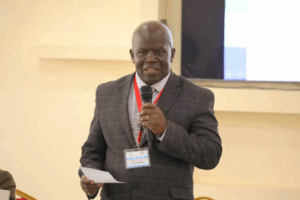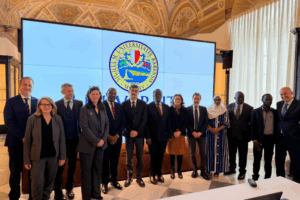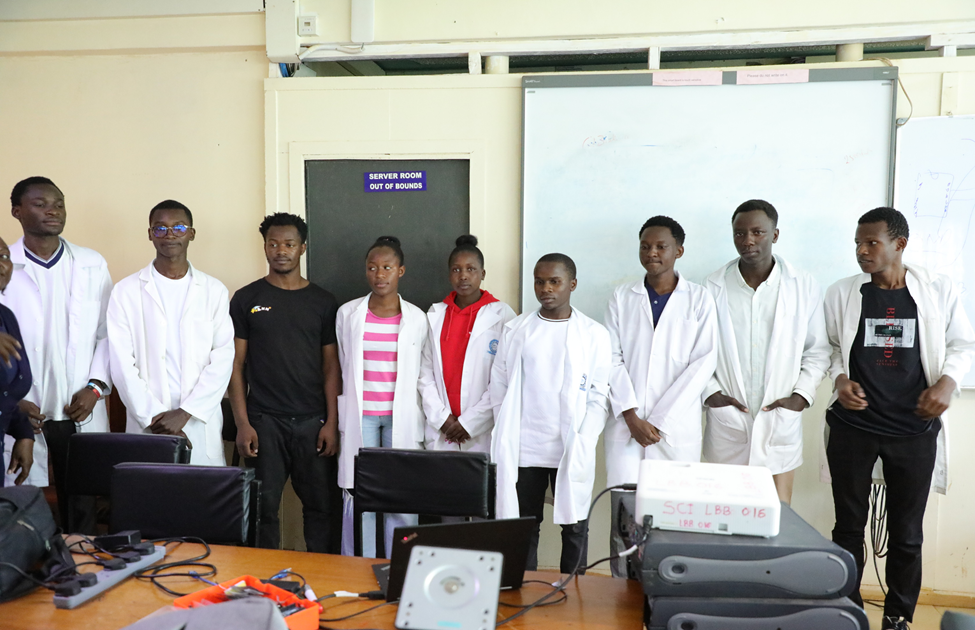
MMUST School of Computing and Informatics Continues to Prepare the Next Generation of Innovators With Intensive IoT and AI Training
Masinde Muliro University of Science and Technology’s (MMUST) School of Computing and Informatics (SCI) second-year and Diploma students are undergoing intensive practical training on the Internet of Things (IoT) and Artificial Intelligence (AI). This 8-week program, typically conducted between May and July every year, is a key part of the School’s efforts to equip its students with hands-on skills for the demands of the modern tech industry. Beyond technical proficiency, it also serves as an opportunity for the faculty to build confidence in their students’ ability to innovate and develop real-world solutions. Overseeing the training of the module is Dr. Dorothy Rambim, a seasoned researcher and lecturer in the Department of Computer Science.
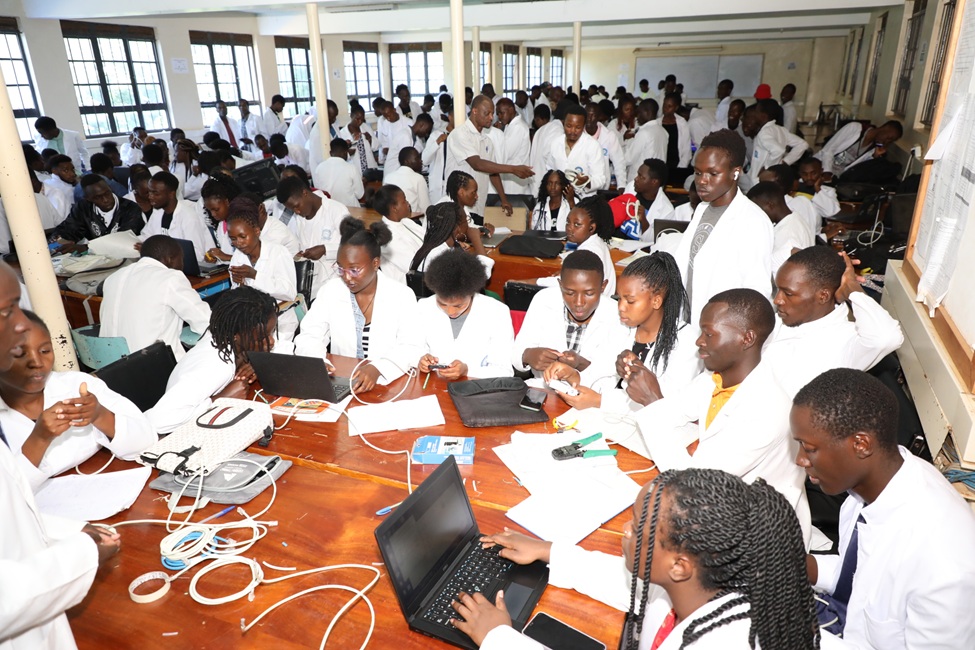
Students working in groups at the main computer laboratory.
Speaking during an interview, the Associate Dean SCI, Dr. Collins Odoyo highlighted the historic distinction between university education’s focus on generating new knowledge and theories, and Technical and Vocational Education and Training (TVET), whose intent is to nurture people with hands-on skills. According to Dr. Odoyo, we are living in an era where job competitiveness is at an all-time high and employers are carefully seeking personnel who can skillfully deliver their roles and beyond. “It was as a result of this that SCI found it imperative to bridge this gap by retaining second-year and diploma students during their usual long holiday break, to equip them with practical skills that are demanded by the rapidly evolving tech industry. This has given us an opportunity to ensure that we produce industry ready and highly competitive graduates in the sector,” he stated.
Notably, Dr. Odoyo pointed out that the School has been deliberate on giving this training to the second year and diploma students because they have not yet embarked on their attachments, and are ready to apply foundational knowledge. Besides IOT and AI, he said that the School has been training other modules including networking, computer maintenance, assembly and disassembly, and systems administration because of the depth of computers and also because students are gifted differently.
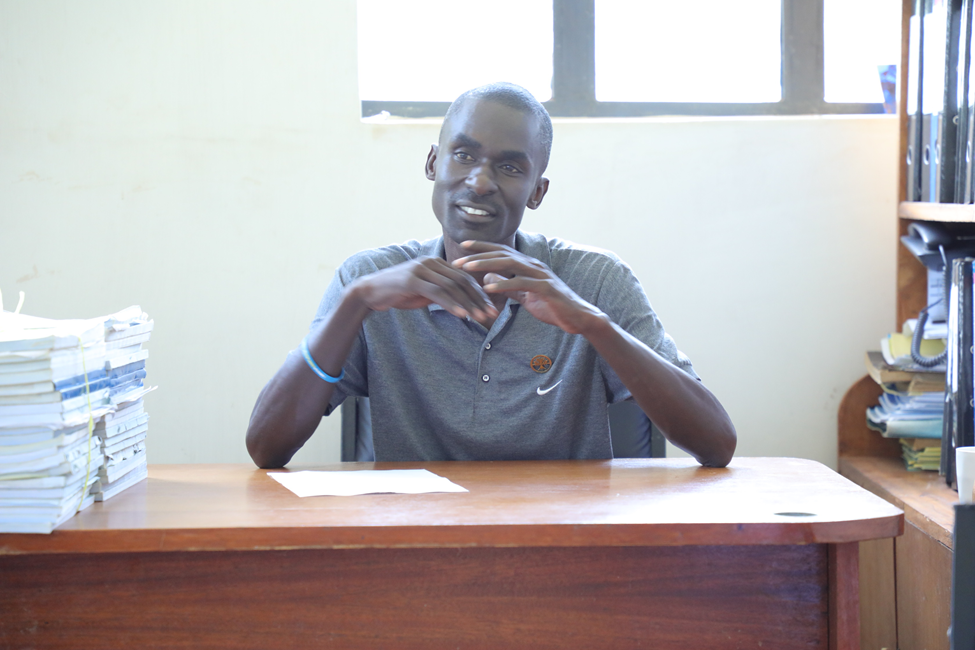
The Associate Dean SCI, Dr. Collins Odoyo during the interview.
The lead person of this year’s practical training; Dr. Dorothy Rambim thanked the University for providing the necessary equipment and commended other faculty members, including the Dean, Chairpersons of Department (CODs), and technicians for their support. Explaining the growing significance of IOT, Dr. Rambim revealed that when we first had the internet, it was supposed to be used by human beings for communication, but the world has been changing where the devices need to just be communicating without people – device to device. She elaborated on the diverse applications of IOT in different sectors such as smart farming, smart manufacturing, healthcare, smart cities, smart homes and buildings, as well as transportation.
“We have a smart gateway already set up in MMUST courtesy of a smart farming project we are doing with our partners from Germany. As we train our students on IOT and AI, this will come in handy especially when we start building real-world models of systems towards the end of this training,” said Dr. Rambim, as she recalled her experiences with IoT during her recent visit to China.
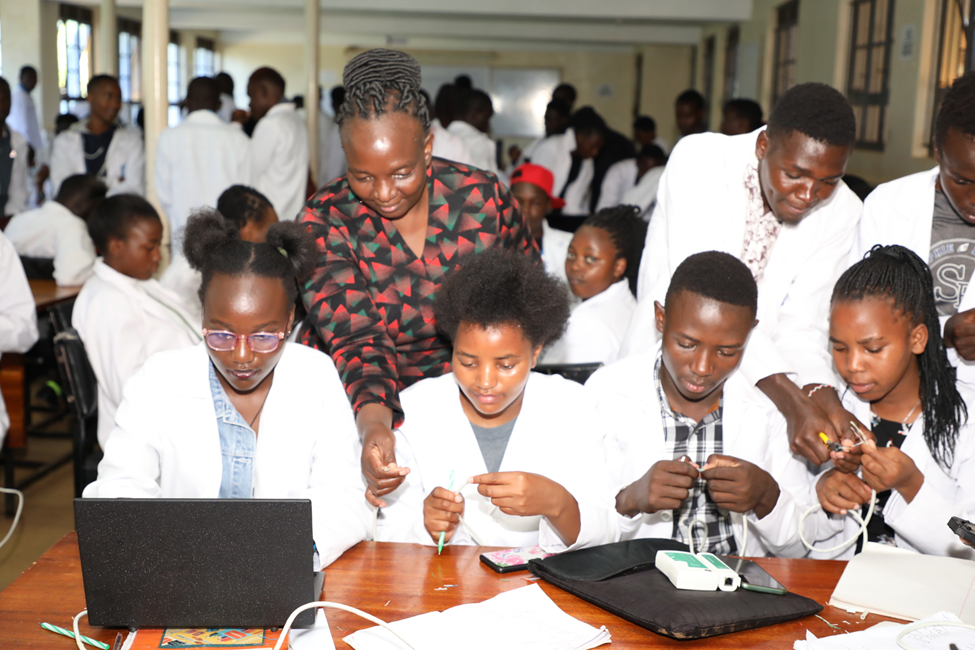
Dr. Dorothy Rambim taking students through practical sessions.
Commenting on the impact of this program, Dr. Odoyo noted that it is evident in the positive feedback they receive from organizations where their students undertake their attachments. “As a school, we are confident that these positive feedbacks are as a result of what we do in second year. They stem from the fact that our students go into attachments already understanding equipment, market dynamics, and industry gaps, rather than just theoretical concepts,” he stated, adding that some students have even been retained by companies after their attachments, sometimes struggling to balance work and fourth-year classes.
As part of its implementation strategy for this module, the School has adopted peer learning where it is leveraging its students who have been trained through other university programs and innovation platforms like hackathons, to mentor their peers. “This approach aims to cultivate a ‘can-do’ mentality that if my peer is able to understand this concept, then I can too,” noted Dr. Rambim.
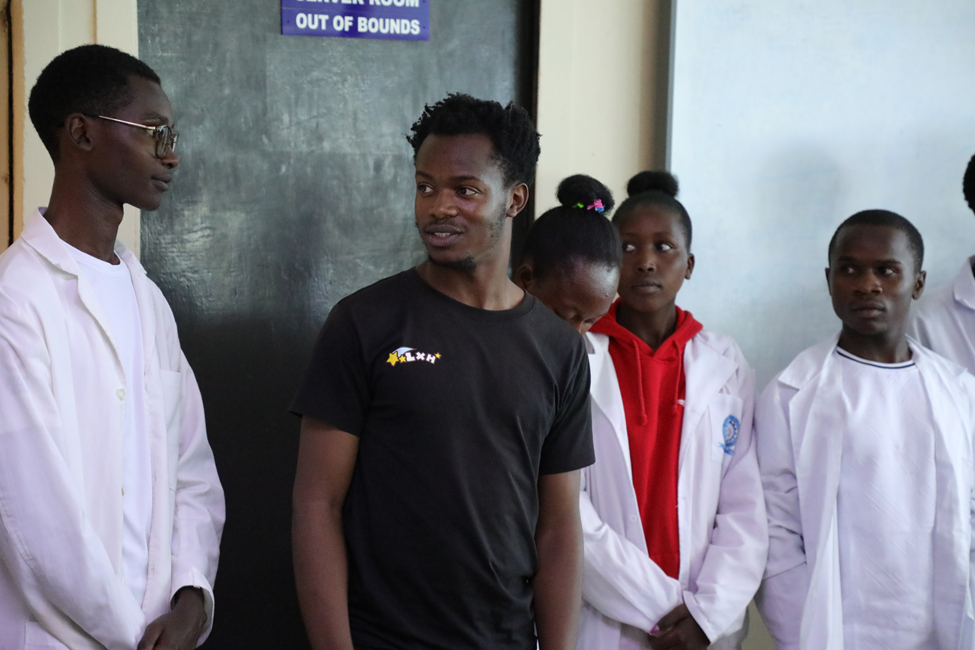
The lead Student mentor, Mr. Fred Muyoma (in black t-shirt) speaking to the students.
“What we are doing may seem small but believe you me we are doing great things,” noted Mr. Fred Muyoma, one of the students mentoring his peers. On the same breadth, the Female student representative SCI, Ms. Laura Shavia appreciated this initiative, acknowledging the challenge it poses for students to delve deeper into concepts on their own time. “8 weeks is not enough to make one qualify for the industry, but it gives us a push to keep making ourselves better on our own,” she noted.
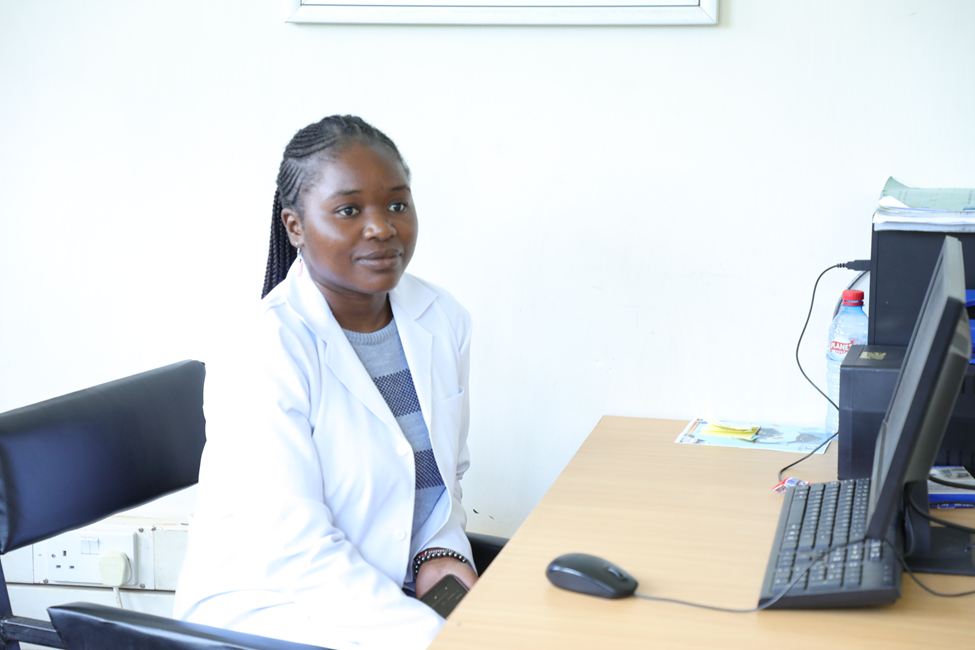
The Female student representative SCI, Ms. Laura Shavia.
The integration of technology, particularly the internet, is designed to simplify work and improve lives. It is commendable that MMUST is looking beyond imparting technical knowledge by nurturing a generation of graduates who are well equipped to meet the demands of the modern tech industry and are confident in their ability to innovate and develop real-world solutions.
By Caren Nekesa
Photos by Ronny Obuolo

